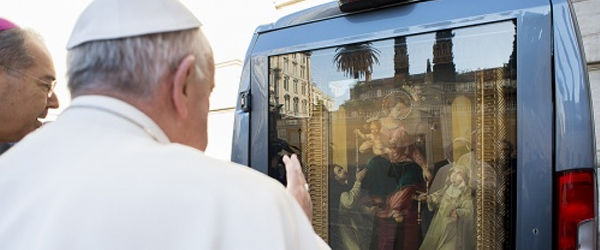It is easy, almost too easy, says Sherif Girgis, to make the discussion about traditional versus same-sex marriage into a debate about equal rights and discrimination.“One place people get stuck in defending or articulating the case for one man-one woman marriage is that they see it in terms of expanding or restricting the pool of people eligible to marry,” notes Girgis, a Rhodes scholar currently pursuing his Ph.D. in philosophy at Princeton and his JD at Yale Law School. “And from that standpoint, it’s very easy to look at this issue as discriminatory.“So we need to start the conversation from a different place, by asking, ‘What is marriage, and why is the state involved?’ That changes the conversation.”“What Is Marriage,” the title of a 2012 book Girgis co-authored with Ryan T. Anderson and Robert P. George, is also the topic of a presentation he will give March 18 at St. Therese Church in Alhambra. The talk is sponsored by St. Monica Academy of Pasadena.In the book (subtitled “Man and Woman: A Defense”), the authors identify and defend the reasons for marriage as a conjugal partnership, a male-female union, and discuss why redefining civil marriage is unnecessary, unreasonable and contrary to the common good.In a telephone interview from his home in New Haven, Conn., Girgis — who has given lectures and talks and engaged in debates on marriage and related topics throughout the United States and abroad — noted that some want to define, or redefine, marriage as “emotional companionship.” “But that doesn’t explain what makes marriage different from any other relationship,” he said, noting that polygamy or other types of “unions” could easily be sanctioned by the state — nor need they be permanent and lasting, or sexual, or sexually exclusive, for that matter — if emotional companionship was the only component necessary. “We need to ask, if marriage is simply companionship, why is the state involved?”The fact is, Girgis stated, that the Catholic Church’s vision of marriage was articulated by the ancient Greeks and Romans long before the time of Christ.“The state is involved in marriage because the state has a strong interest in the well-being of kids who are brought into life through marriage,” he said. “It brings together man and woman as husband and wife, and all societies have regulated it.”Marriage, said Girgis, is a unique and complete summary of a relationship. “Marriage is a comprehensive union of heart, mind and body, all elements actively coordinated to form a single bodily union — and it is only possible with two people, a man and a woman,” he asserted. “Marriage, through the act of sexual intercourse, has a special and unique relationship to procreation and family life. In marriage alone, the very act that makes marital love also makes new life; the two become one flesh. “Because of these things, marriage is a comprehensive union — and, moreover, a commitment.” In a Feb. 11 article for the National Review, Girgis and his co-authors noted that marriage offers “distinctive norms of permanence, exclusivity and orientation to family life.” Redefining marriage to include same-sex relationships, they wrote, would not only undermine “the stabilizing norms of marriage,” but “the notion that men and women tend to bring different gifts to parenting will not be reinforced by any civil institution.”The authors stressed that to support marriage as “one man-one woman” should never lead to hostility against those who are homosexual, or those who never marry. “But the same concern for the common good requires protecting and strengthening the marriage culture, by promoting the truth about marriage,” they said.Girgis noted that there have been plenty of efforts, in the U.S. and around the world, to redefine marriage to include same-sex couples. Yet, he added, “It is interesting to note that in France, which many dismiss as increasingly secular, there is a huge movement against the redefinition of marriage from one man and one woman. They may believe that adults have the right to live as they choose, but they also believe that children have the right to the love of a mother and father. Biology matters from an adult perspective, and the absence of a father and mother affects people.”As to how the Catholic Church has succeeded in trying to articulate the case for traditional marriage, Girgis said, “We’ve done a good job. But the overall debate has increasingly become focused on the personal satisfaction and fulfillment of adults, rather than the issue of family.”He suggested that those wishing to make a stronger case for promoting marriage as “one man-one woman” can take their lead from the pro-life movement. In the 40 years since Roe v. Wade, pro-life forces have made significant strides (assisted by technological developments like the sonogram) in not only establishing that abortion involves the taking of life, but in educating youth in a greater appreciation of marriage and family life, and the importance of a mother and father in the life of a child.Sherif Girgis’ talk will take place March 18, 7 p.m. at St. Therese Church, 1100 E. Alhambra Road, Alhambra. For more information, contact Todd Inman, (626) 229-0351 or [email protected]. For information on the book “What Is Marriage?” (Encounter Books 2012), visit http://whatismarriagebook.com/.

